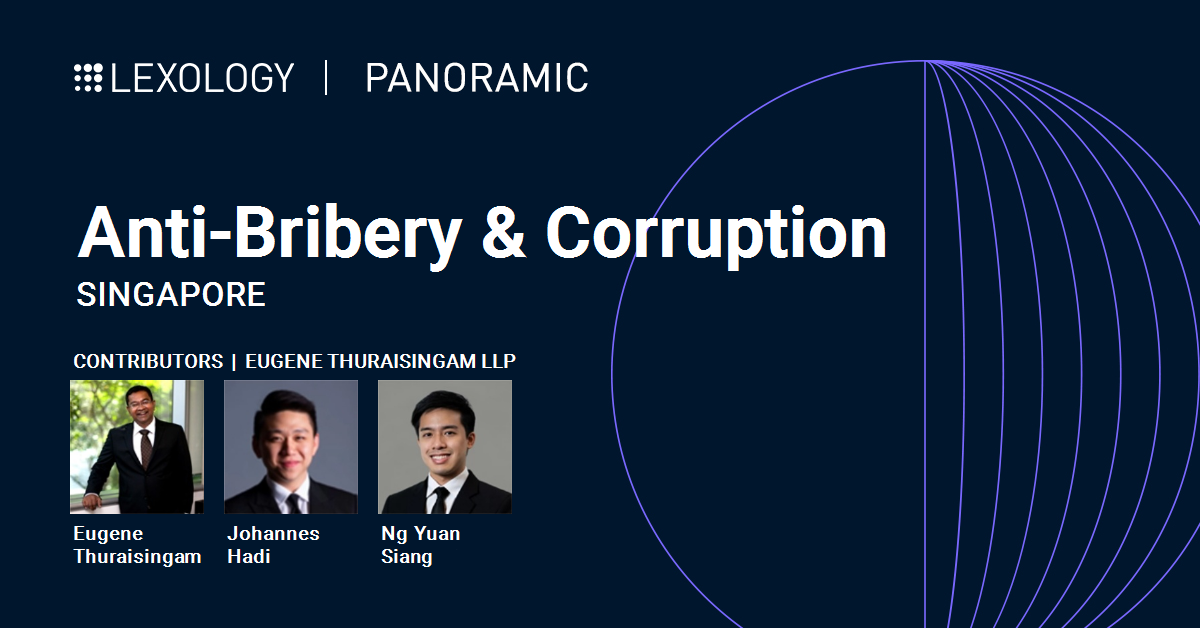International Arbitration and Legal Technology in Singapore
International Arbitration and Legal Technology in Singapore by Syazana Yahya*
I wish to acknowledge Mr Tan Wen Da for assisting me in the preparation of this article. All errors are mine.
1. Riding the Technological Wave in International Arbitrations: Legal Issues and Possible Safeguards
Covid-19 has accelerated the technological wave and has substantially impacted the way international arbitrations are conducted. Virtual arbitrations and hybrid hearings are now increasingly common in international arbitration. In Singapore, the Singapore International Arbitration Centre (SIAC) has launched a series of webinars to guide arbitration lawyers in conducting and running a virtual hearing. Maxwell Chambers, where the SIAC, the International Court of Arbitration of the International Chamber of Commerce (ICC) and the International Centre for Dispute Resolution (ICDR) are located at, also has in place infrastructural facilities and services to support the smooth and efficient conduct of a virtual arbitration. These changes were implemented efficiently in a matter of months.
This shift in the processes of international arbitration has led to cost and time efficiency, especially in cross-border disputes, as witnesses overseas are no longer required to attend physically at the arbitration venue to give evidence.
Despite all of its efficiencies and scalability, virtual hearings present a huge adjustment to traditional physical proceedings. This article explores the potential legal issues that may arise in a virtual arbitration hearing and possible safeguards that can be put in place to address these potential legal issues.
2. Natural justice
2.1. Logistical Considerations
In facilitating a virtual arbitration hearing, concerns pertaining to breaches of natural justice may arise. There are many reasons why parties may object to a virtual hearing, ranging from structural issues such as the lack of proper technological infrastructure to purely strategical interests in prolonging the arbitration process. While these will not necessarily constitute a breach of natural justice, the considerable level of technology needed to support virtual hearings and the realities of global inequality could result in a breach of natural justice where parties are situated in countries with vastly different levels of technological infrastructure.
A practical example would be an arbitration between Party A whose witnesses are primarily located in a first world country (FWC) and Party B whose witnesses are primarily located in a less developed country (LDC). FWC’s internet speed is relatively advanced while LDC’s internet infrastructure is still developing. A slow internet connection on the LDC side will be detrimental to Party B. Screen freezes or video-call disconnections are prone to happen. Separately, Party B may also be susceptible to the frequent power outages occurring in LDCs, which will discombobulate the arbitration process. While Party B bears no responsibility for its unfortunate circumstances, an unfair hearing can eventuate if the arbitration panel chooses to continue with proceedings. Relatedly, the technological disruptions during the testimony of Party B’s witnesses may affect Party B’s presentation of its case. These matters give rise to an issue of whether Party B had been given a fair opportunity to be heard.
Another key consideration in hosting a virtual hearing is that of time zone differences. Utilising the above example and with the arbitration tribunal seated in an FWC, a virtual hearing scheduled for 2 PM GMT may mean that Party B, their witnesses and counsels are required to appear before the Tribunal at a later time in an LDC. Witness examinations over an extended period of time may result in the virtual hearing running into the wee hours of the morning for Party B. This example can be further complicated by throwing in Party B’s expert witness who resides in, for example, Los Angeles where the time will be 6 AM. This can result in witnesses for Party B being mentally drained by that point and unable to give testimony in a mentally alert state, while witnesses for Party A remain in peak condition to give evidence. This may constitute a breach of natural justice as the conduct of the hearing is unfavourable to Party B.
As a whole, participants of virtual hearings are also more inclined to experience “Zoom fatigue”, a recent phenomenon proliferated by the onset of COVID-19 and working-from-home measures.
2.2. Witness-Coaching
Another matter that the arbitration tribunal should consider before implementing a virtual hearing is the risk of witness-coaching. Witnesses may perceive virtual hearings as being more informal given that they are presenting evidence from the comfort of their own homes and are spared the intimidating and formal atmosphere they are subjected to before a physical arbitration panel. In a virtual hearing, witnesses are more easily able to surreptitiously communicate with counsels or third parties during breaks or even during the hearing, through putting their mobile phones out of the camera’s view or even on the Zoom chat function. Witnesses can also refer to notes on their computer screen or placed behind their camera. If counsels or other parties are directing witnesses to give the “correct” reply or coaxing them to look at a certain document in response to a question, issues in regards to the integrity of the evidence will arise.
Some safeguards were initiated after these issues came to light, including the installation of online proctoring software such as Proctorio or the use of screen-facing cameras or 360° rotating cameras to monitor the witnesses. However, these solutions are not without their shortcomings. First, these technological services are costly. A less financially able party may not agree to adopting these technological services because of the costs involved. Second, data privacy concerns may arise. Proctorio, regularly utilised by Australian and Canadian universities for invigilating their online examinations, was mired in a controversy after a student’s chat log was leaked on Reddit’s website. Corporate affairs and trade secrets are commonly revealed during arbitration proceedings and with so much more financially at stake, parties will be wary of granting computer access to any third-party proctoring software that captures and stores data from the proceedings. While optimally positioned cameras should not raise such data privacy concerns, they are not infallible given that witnesses are still able to contact their counsels or other third parties for assistance when they leave the room during breaks.
3. Data Privacy Concerns
This brings us to the third issue – data privacy concerns. In the process of a virtual hearing, more participants are involved. A number of them are third-party service providers assisting with translation, transcription or proctoring. Parties are able to choose and agree on their own third-party service providers located anywhere globally in a virtual hearing. Supervision of these service providers in a virtual hearing can be much more difficult to manage and in instances where they are not bound to confidentiality agreements, these providers will be at liberty to store any data received and use them for their own purposes.
Virtual communication platforms such as Zoom and Opus 2 provide cloud-based legal technology and services for online trials and hearings to be conducted worldwide, but as with all other forms of internet technology, remain at risk of being hacked into by undesirable cybercriminals. A prominent example is the hijacking of the Zoom virtual classroom, where the communications technology platform was hacked and participants were shown obscene pictures and flashers. This incident, while relatively innocuous, revealed critical privacy deficiencies in Zoom’s software, despite them having claimed to abide by high privacy standards and laws. When it comes to arbitration where much more is at stake, such incidents can lead to hijacking of the parties’ private corporate information and such information hostage being held hostage. Even where documents are encrypted and passwords are required to enter into the virtual hearing, data privacy can be breached if authorised personnel leak any information disclosed in the hearing or take photographs of confidential documents and upload them online.
4. Safeguards
Virtual hearings are set to become the “new normal” in an increasingly globalised world with progressing technological developments. The abovementioned issues can be managed by establishing new safeguards to the arbitration process and reinforcing those already in place.
Legal technology companies will have a key role to play in this shift and in the creation of new safeguards to deal with the issues arising out of the technological wave. It is anticipated that more efficient and specialised software, attuned to the confidential nature of arbitrations and the need to preserve the integrity of evidence presented in the arbitration, will be developed.
Until such software is developed, the following safeguards could be implemented.
4.1. Safeguards to Prevent Breaches of Natural Justice
It is impossible to completely assuage the issue of global internet infrastructure disproportion in the near future. However, some safeguards that can be implemented to ensure a fair virtual hearing are protocols outlining the minimum technical specifications and internet connectivity required before the commencement of the hearing. The African Arbitration Academy’s Protocol on Virtual Hearings in Africa and the Korean Commercial Arbitration Board’s Protocol on Video Conferencing in International Arbitration are some examples that set out minimum industry standards for video, data collaboration, picture, channels, bandwidth and bridging. The African Arbitration Academy’s Protocol also dictates that more time can be given for businesses located in Africa to decide on the platform to be used for the arbitration process and ensuring that there is at least one back-up internet provider on standby in the event of technical difficulties. Where parties reside in an area with an unreliable internet connection or where their hardware does not meet the minimum technical specifications, the protocol should also direct parties to travel to a nearby arbitration institution which should generally have the necessary equipment for a virtual hearing.
A number of safeguards to prevent witness-coaching were presented above in this article. The installation of online proctoring software and cameras (screen-facing or 360° rotating) can be further reinforced by implementing a rule that witnesses must place their hands in full view of the Tribunal at all times. Accordingly, witnesses will not be able to communicate discretely with counsels for assistance on their evidence. A key additional safeguard would be for each party to appoint an observer to the opposing party’s virtual hearing venue. While cumbersome, such a procedure will prevent breaches of natural justice when the witnesses leave the room during breaks.
4.2. Data Privacy Safeguards
More needs to be done to ensure the confidentiality of virtual hearing proceedings, as well as the submissions and other key information that are presented. This would include strict use of password protection, secure internet connection, and limiting access to the virtual hearing platform. While these steps can be taken, it is not “failproof” and may be harder to achieve with regards to participants from developing countries, where stable internet connection is not readily available. This also puts their online data at greater risk of being hijacked. It is therefore important for third-party providers to secure their virtual hearing platforms and ensure that their security measures are reviewed and updated frequently.
As a supplementary measure, Arbitration institutions should also adopt cybersecurity protocols similar to those specified in the London Court of International Arbitration 2020 Arbitration Rules. Article 30A of the Rules stipulated that the Arbitration Tribunal has the prerogative of considering whether to adopt relevant measures to protect data disclosed in the arbitration process. Measures that can be implemented include making it compulsory for third-party service providers assisting the Tribunal to sign a non-disclosure agreement and to set out a protocol barring the use of mobile phones and personal recording devices in the virtual hearing rooms. Arbitration Tribunals can also be permitted to make procedural orders laying out relevant data privacy concerns pertaining to their virtual hearings. Such procedural orders could specify the allocation of liability in the event of any privacy breach by the parties and costs or sanctions can be imposed, thus deterring non-compliance.
5. Conclusion
This is the start of a new era. The pandemic has forced stakeholders to rethink traditional ways of doing things, and the winners in this technological revolution are the ones who are willing to relearn and push boundaries. While efficiency in adapting to the digital age for international arbitrations should be encouraged, neglecting the potential issues arising therefrom and a failure to implement appropriate safeguards could open a floodgate of further post-arbitration disputes, such as actions to set aside arbitral awards on grounds of breach of natural justice and breach of confidentiality.
*”International Arbitration and Legal Technology in Singapore” was the feature article in the Benchmark Litigation News & Analysis.






